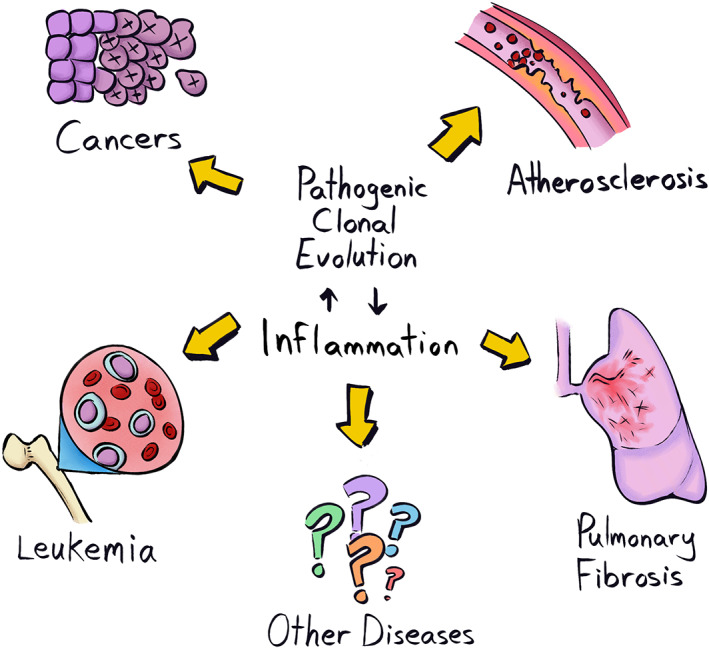Fig. 2.

Clonal evolution and disease. Pathogenic clonal expansions can promote and be promoted by inflammation, and contribute to multiple diseases of aging. While these clones can sometimes directly contribute to malignant disease, as clearly demonstrated for leukemias with clonal hematopoiesis mutations (and also likely the case for mutations in solid tissues, such as in TP53 or PIK3CA), evidence also reveals how clonal expansions can contribute indirectly to cancers and non‐malignant diseases (like cardiovascular disease, CVD, which is associated with CHIP) such as through the promotion of inflammation. Finally, although still poorly established, emerging evidence suggests direct roles for clonal expansions in non‐malignant disease such as for fibroblasts in pulmonary fibrosis or for vascular smooth muscle cells in CVD [51]. [Colour figure can be viewed at wileyonlinelibrary.com]
